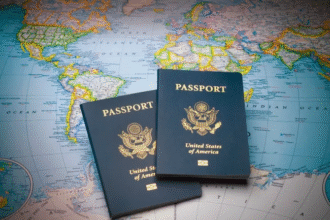Tourism remains one of the most vibrant industries globally, and in 2025, it continues to evolve alongside international travel policies. With global events, technological advancements, and changing border regulations, understanding tourist visas has never been more crucial. For travelers looking to explore the world without unnecessary stress, knowing the latest updates is key to a smooth journey.
Tourist visas are more than just an entry stamp in your passport; they represent a country’s regulations, security concerns, and hospitality approach. As new trends emerge in travel, it is essential for globetrotters to stay informed about requirements, costs, and validity periods to ensure they make the most of their trips.
Visa-Free Travel Expansion
One of the biggest developments in 2025 is the expansion of visa-free agreements between countries. Many nations are now partnering to boost tourism, allowing travelers to visit multiple destinations without the hassle of obtaining separate visas. This trend is especially prominent in regions where tourism drives significant economic growth.
For travelers, this means easier planning and more spontaneous trips. However, it is still important to verify each destination’s latest entry requirements, as these agreements can change quickly due to diplomatic or security concerns. Checking official government websites before traveling ensures that you have the most accurate information.
Digital Visa Applications
The rise of technology has made applying for tourist visas more convenient than ever. In 2025, most countries now offer fully digital application processes, eliminating the need to visit embassies or mail physical documents. These systems often provide faster approvals, some even within 24 hours.
This shift to digital processing not only benefits travelers but also helps governments streamline operations and reduce fraud. However, applicants must still be careful when entering personal information online, ensuring they use only official government portals to avoid scams.
Biometric Requirements
Another notable change in tourist visas this year is the widespread adoption of biometric verification. Fingerprint scans, facial recognition, and even iris scans are becoming standard parts of the application process. This enhances border security while providing a smoother immigration experience.
For travelers, this means carrying out the biometric process in advance when required, often at designated centers. The increased use of biometric technology is also paving the way for quicker border checks upon arrival, reducing long queues at airports.
Changing Validity Periods
Tourist visa validity periods are no longer as predictable as they once were. Some countries now offer extended stays of up to a year for visitors, while others have shortened the period to manage immigration more strictly. These changes often depend on diplomatic relationships and domestic policies.
It is important for travelers to check not only the validity period of their visa but also the allowed number of entries. Overstaying a visa, even unintentionally, can lead to fines, bans, or future travel restrictions.
Health and Insurance Requirements
The events of the past few years have left a lasting impact on international travel policies. Many countries in 2025 now require proof of health insurance that covers medical expenses during your stay. In some cases, travelers must also provide vaccination records or proof of recent health checks.
These requirements aim to protect both visitors and local communities from potential health risks. While they may seem like additional hurdles, they ensure safer travel experiences and reduce the likelihood of unexpected medical costs abroad.
Evolving Visa Fees
Tourist visa fees vary widely from country to country, and in 2025, many nations have adjusted their pricing structures. Some are lowering fees to attract more tourists, while others are increasing them to manage visitor numbers or fund infrastructure improvements.
For frequent travelers, these changes mean budgeting more carefully for trips. Understanding the full cost of a visa before booking travel can help avoid surprises later on.
Multiple-Entry Options
Multiple-entry tourist visas are becoming increasingly popular, allowing visitors to enter and leave a country several times within a set period. This is particularly useful for travelers exploring regions with close borders or planning multi-country itineraries.
However, the eligibility criteria for multiple-entry visas can be stricter, often requiring proof of previous travel history, stable finances, and strong ties to the applicant’s home country.
Visa Processing Times
Processing times for tourist visas can vary dramatically. While some countries offer near-instant approvals through online systems, others still require several weeks for processing. In 2025, factors like political situations, seasonal demand, and new security measures can also impact timelines.
Travelers are advised to apply well in advance, especially during peak tourist seasons. This ensures that any unexpected delays do not disrupt travel plans.
Travel Bans and Restrictions
Despite the trend toward easier travel, some regions still impose strict bans or restrictions on certain nationalities. These can be due to political tensions, security concerns, or public health emergencies. In 2025, such measures are often implemented suddenly, making it essential to stay informed.
Checking travel advisories and official announcements before departure can prevent costly and frustrating disruptions.
Future Trends in Tourist Visas
Looking ahead, the tourist visa landscape is expected to continue evolving. Technologies like blockchain may be used for secure document storage, and AI could assist in real-time application approvals. Countries are also experimenting with ecotourism incentives, offering visa discounts for travelers who choose sustainable travel options.
Staying ahead of these changes is the key to stress-free and enjoyable international travel. For globetrotters, understanding the latest in tourist visa policies is just as important as booking flights and accommodations.









